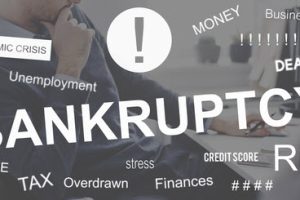What’s the Difference Between Chapter 7 and Chapter 13 in Indiana?

Once upon a time, a vast network of strong laws protected American consumers from debt collectors. But the Supreme Court has recently diluted many of these protections. As a result, debt collectors are more aggressive than ever when families fall behind on secured or unsecured obligations.
Due to these changes, bankruptcy might be the best way, or the only way, to stop creditor harassment and other adverse actions, like repossession and foreclosure. Courts simply do not intervene in these matters unless there are extraordinary circumstances. Bankruptcy also does something the Fair Debt Collections Practices Act and other laws do not do. Bankruptcy protects your family’s core assets, such as your house and retirement account, from creditor seizure.
A Chicago bankruptcy lawyer does much more than file the proper forms. An attorney also stands up for you in court when necessary. All the while, an attorney also gives you solid legal advice, so you can make the best possible choices.
Chapter 7 Nuts and Bolts
Most people qualify for Chapter 7 debt relief. The family’s income must be lower than the average annual income for that family size in that geographic area. As of May 2020, that figure is just under $88,000 for a family of four in Indiana. Moreover, debtors must complete a credit counselling course before they file.
Generally, this federal program is designed for people with significant unsecured debt, such as:
- Credit Cards: The average credit card interest rate is just below 19 percent. So, many families make more than the minimum payment each month, yet the balance barely budges. Running on that financial treadmill is no way to live.
- Medical Bills: After a brief decline during the Great Recession, medical bill inflation is on the rise again. Even if the family has good health insurance, which is by no means a given, deductibles and copays alone could be financially crippling.
- Payday Loans: Many people are on this financial treadmill as well. If a family cannot meet its expenses in January and needs a loan, the same thing will probably happen in February. And, payday loan interest rates are much higher than credit card rates.
Other unsecured debts, such as back taxes and student loans, are dischargeable in certain situations. Some unsecured obligations, mostly unpaid Family Support Obligations like child support, are not dischargeable.
“Discharge” means the judge eliminates the legal obligation to repay the debt. In most cases, a judge signs a discharge order a few months after debtors file their voluntary petitions. Debt discharge is the very essence of a fresh start.
Chapter 13 Nuts and Bolts
Most people also qualify for Chapter 13 debt relief. The family’s secured debts, including both current and past-due amounts, must not exceed $1.2 million. Secured debts include things like:
- Home Mortgage Payments: In 2012, the country’s largest mortgage companies agreed to end some practices detrimental to lenders. But their compliance has been uneven at best. In February 2020, Wells Fargo paid a $3 billion fine due to years of deceptive loan practices.
- Vehicle Loans: Legally, most lenders may begin repossession proceedings after just one missed payment. Furthermore, because of the aforementioned legal changes, many of these lenders no longer give people a grace period.
Additionally, the family’s unsecured debts cannot exceed $395,000. If these debt limits are a problem, Chapter 7 might be an option.
Most people do not want to discharge secured debts. If that happens, the lender will repossess the collateral. So, Chapter 13 gives families up to five years to repay secured debt arrearage. The trustee (person who oversees the bankruptcy for the judge) sets the debtor up on an income-based repayment plan.
Reach Out to Dedicated Lawyers
Distressed debtors have legal options. For a free consultation with an experienced Chicago bankruptcy lawyer, contact the Bentz Holguin Law Firm, LLC. Convenient payment plans are available.
Resource:
supremecourt.gov/opinions/16pdf/16-348_h315.pdf
https://bentzholguinlaw.com/does-an-indiana-bankruptcy-affect-social-security-benefits/


